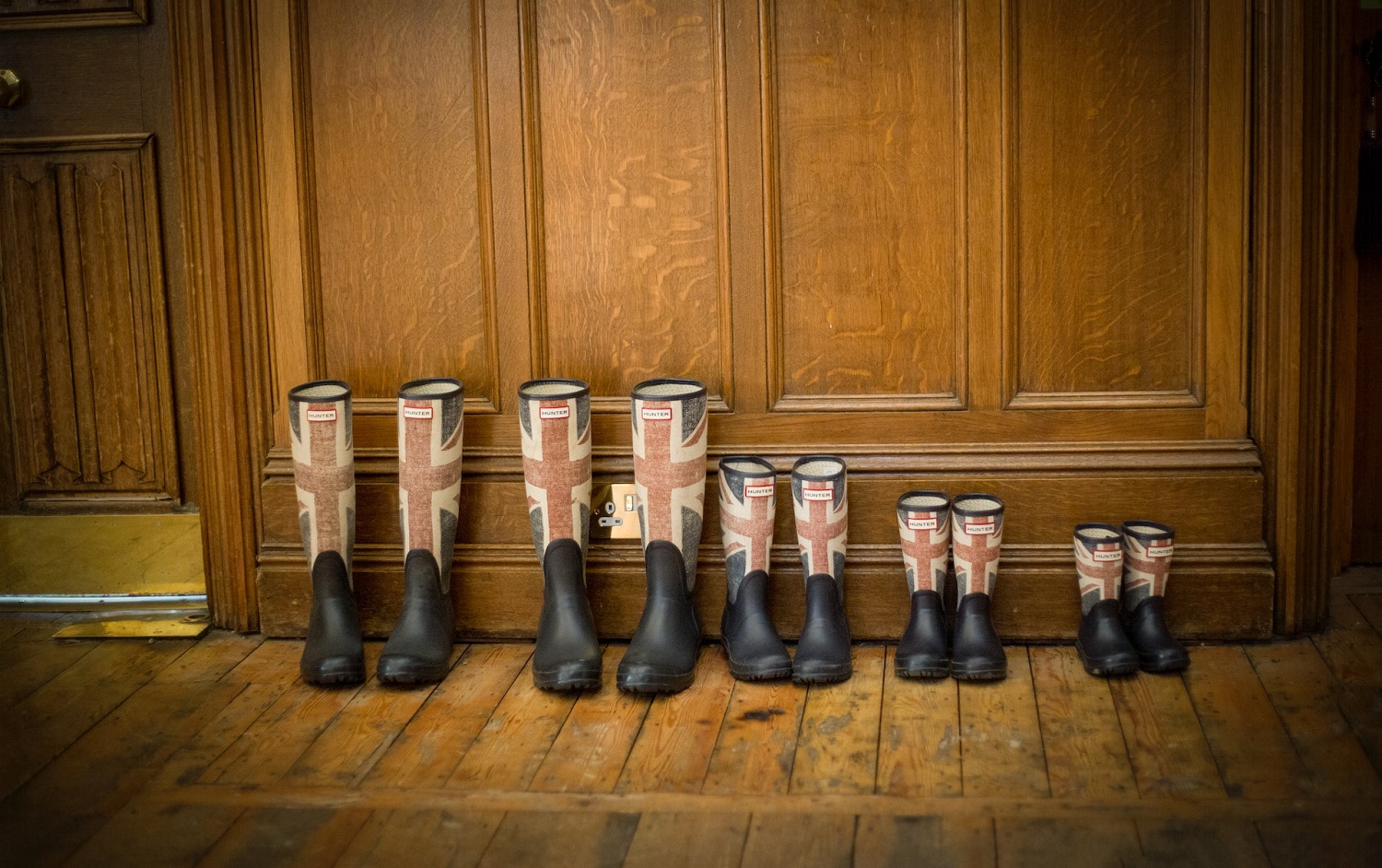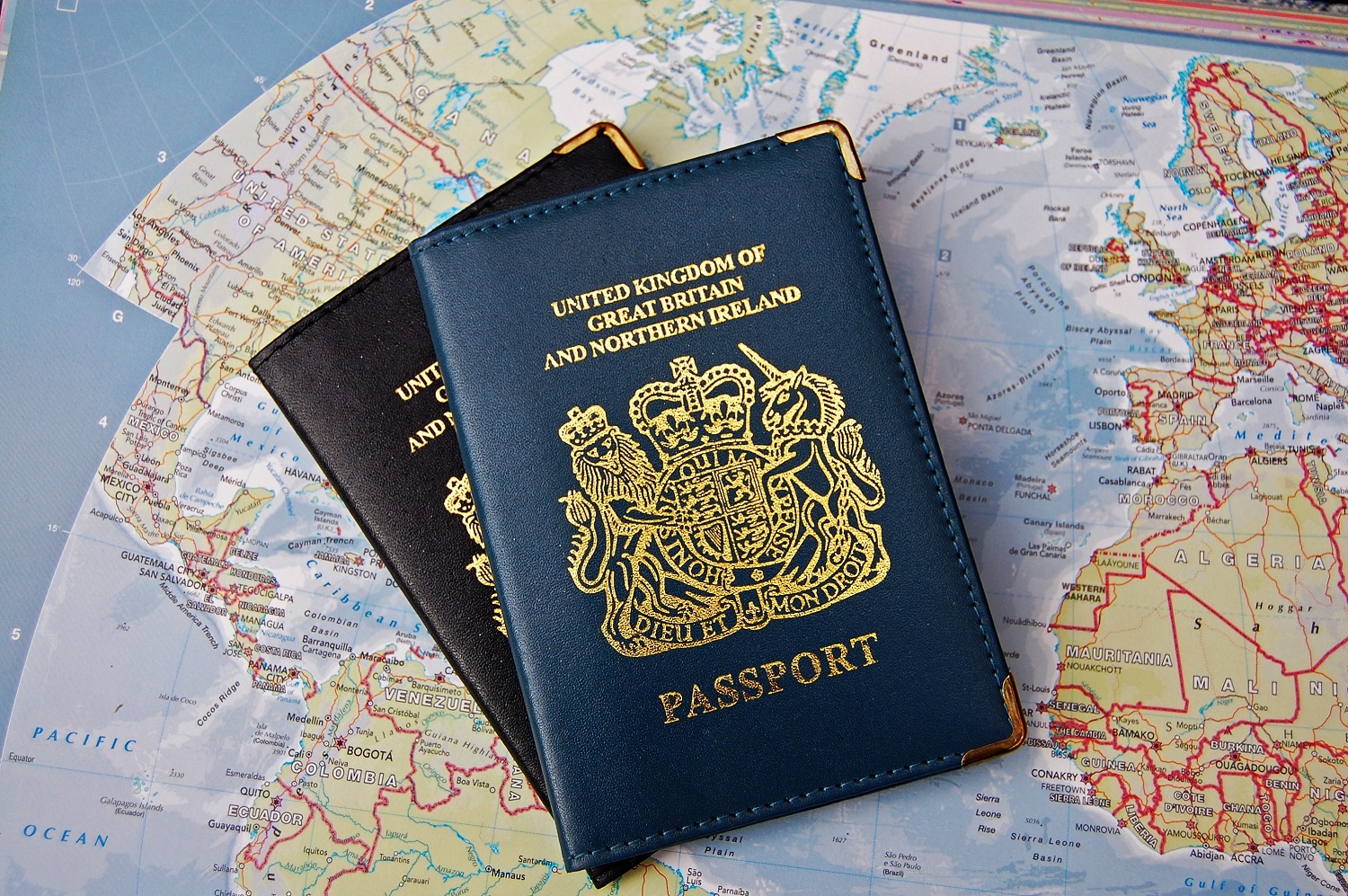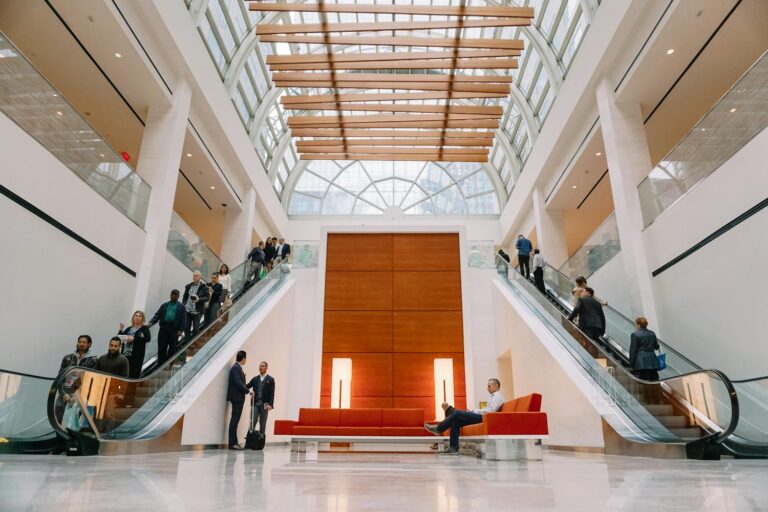Submitting an Indefinite Leave to Remain (ILR) application and applying for British Citizenship can be a daunting process. It can leave even the most determined applicants feeling overwhelmed. To support you in submitting a successful application, Osbourne Pinner’s team of expert immigration solicitors and advisors are ready and available with a wealth of advice and knowledge.
We know that your time and money is precious. That’s why our dedicated team are here to aid you in taking the best approach for your application, removing the stress and concern that goes into applying for UK and ILR citizenship. We provide clear and straightforward advice, acting with complete transparency in all communications and without the confusing legal jargon.
Understanding which documents you will need. Navigating the eligibility requirements. Finding out what steps you need to take. Discovering when to submit your application. It’s fair to say there are several complexities that leave room for error. That’s why you’ll want an efficient and professional solicitor to support you.
That’s exactly what we provide at Osbourne Pinner. Every member of our team boasts years of experience in dealing with a range of immigration requirements, specialising in British Citizenship and Indefinite Leave to Remain applications. We’re ready and waiting to guide you in securing a successful outcome.
How can our immigration solicitors help?
The process of creating and submitting a successful application for either ILR or British Citizenship can be highly complex. Our immigration solicitors are on hand to make that process much more straightforward and clearer. By working with an experienced immigration solicitor, you’ll be able to craft your application with ease, giving you back your time to spend on more important things.
The specialist team of immigration lawyers at Osbourne Pinner boast an exceptionally high success rate, having worked on hundreds of applications and consistently delivering reliable results. By doing so, we’ve experienced first-hand many of the challenges you may face when acquiring Indefinite Leave to Remain, becoming a citizen through naturalisation and applying for a British Passport. That’s made us fully equipped to help you become a British Citizen.
Starting with a free initial consultation, we’ll precisely examine your case and support you in filling out your application and collating the best supporting documents. Our distinguished, London-based team are available to assist you every step of the way to a successful outcome.
What is Indefinite Leave to Remain?
Indefinite Leave to Remain (ILR) is a form of settlement that is available to citizens from countries outside of the European Economic Area (EEA). Before applying for ILR, you need to have lived in the UK for at least five years. However, there are some circumstances where you can apply after three.
Several visas can lead to ILR, including Tier 1, Tier 2 and Spouse Visas. Once you have been granted Indefinite Leave to Remain, you’ll be able to begin the naturalisation process which will lead to full British Citizenship.
What exactly is British Citizenship?
Becoming a British Citizen means that you will be recognised as belonging to the UK. Those who migrate to the UK and would like to permanently stay often seek British Citizenship. However, the process of doing so can be complicated.
Applying for citizenship is referred to as ‘Naturalisation’ and requires non-UK residents to meet set criteria. Many applicants can get confused at this stage between naturalisation and applying for a British Passport. However, once you have been granted settled status, permanent residence or indefinite leave to remain, you can then apply for and secure citizenship, before applying for a British Passport.
Qualifying for ILR
Each person’s eligibility for applying for ILR will depend based on their individual circumstances. However, the most basic requirement is that they must have lived lawfully within the UK for three to five years, depending on your situation.
Other eligibility requirements include:
- You must hold no criminal record
- You must not have breached immigration laws
- Within 12 months of the qualifying period, you must not have spent more than 180 days outside of the UK
- You must have a pass in the Life in the UK test
- You must have met the B1 level of English, as provided in the Common European Framework of Languages
Some people may be exempt from applying for ILR. For example, if an individual is a child dependent of a British citizen, they are likely to not need to apply for ILR as they may be automatically be granted settled status. Similarly, refugees who have settled in the UK via the Gateway Protection Programme are also likely to be automatically granted permission to stay.
Qualifying for naturalisation
Applicants applying for British Citizenship must meet similar eligibility requirements, including:
- You must be over 18 years of age
- You must have a good character
- You must meet residency requirements
- You must have spent less than 450 days outside of the UK over the past five years or 270 days during the last three years if married to a British Citizen
- You must not have been absent for more than 90 days in the 12 months prior to applying
- You must either have settlement status, for example, Indefinite Leave to Remain, or permanent residence status for at least 12 months
- You must have passed the English Language Test
- You must have passed the Life in the UK Test
Getting prepared for ILR and naturalisation
It will also be essential to provide evidence that you have lived in the UK for the past three or five years. Or six years in the case of EEA Nationals. As such, when submitting an application for British Citizenship, you will need to include a range of documentation to support your case so that they know that your application is authentic and genuine.
These documents will include identification such a passport, all travel documents and birth certifications, as well as any qualifications you have acquired, your economic activity and evidence of your relationship if you are married.
For each of these documents, you will need to submit the original copies. In the case where you can’t supply the original version, you will need to explain why and the Home Office may offer some leniency. Working with us, there’s no need to worry at any stage as your dedicated solicitor will support you in finding all of the evidence you may need.
How long will the applications take?
While there is no definitive timescale for ILR applications, the Home Office tend to process them within six months. The same goes for British Citizenship applications which usually receive a decision within two to six months.
With ILR applications, you will have the option of a priority service, which fast-tracks the decision to five working days. There is also a super-priority service which will see your application reviewed within three working days. However, there is no similar option for British Citizenship applications.
Applying for a British Passport
Many people would like to start applying for a British Passport after securing Indefinite Leave to Remain status. However, this is not something you will be able to do. You will only be able to apply for one once you have citizenship.
That said, securing ILR is the first step towards citizenship, so the process will become more straightforward from here. Once you have spent 12 months living in the UK with ILR status, you will then be able to begin naturalisation, a process that has many of the same requirements and procedures.
Then, once you have completed naturalisation, you’ll be invited to a Citizenship Ceremony where you’ll take an oath to respect the rights, freedoms and laws of the UK. Then, you’ll acquire your Certificate of British Citizenship and be eligible to apply for a British Passport.
What if my application is rejected?
If your application is rejected by the Home Office, the Osbourne Pinner team will be on hand to help you reverse the decision and secure a better outcome.
Applications for ILR and British Citizenship can be rejected for a range of reasons. With the process so complicated, some applicants may fail to fill out forms sufficiently or supply adequate documentation. In this scenario, your expert immigration solicitor will review your application and highlight where information may be missing or inadequate.
Immigration solicitors’ fees
When it comes to applying for Indefinite Leave to Remain and British Citizenship, there will be two types of costs involved – the price of submitting an application, and the cost immigration solicitor fees.
British Citizenship application fees
It’s important to bear in mind that the cost of submitting a British Citizenship application is non-refundable, and there will be additional costs should you need to change anything on your application. That’s why it’s worth spending time – or seeking expert assistance – to make sure your application is perfect.
ILR application fees
The cost of submitting an Indefinite Leave to Remain application is also non-refundable. There will also be a supplementary fee for each additional person included in the application.
Those looking to fast-track their application will also be required to pay an additional fee, while those looking for super-premium service will face a further additional charge.
Immigration solicitors’ service fees
The price of working with an immigration solicitor will depend on your requirements. We always work with complete transparency and honesty, working in a cost-effective manner to keep costs down while we work on your application.
A member of the Osbourne Pinner team will meet with you for an initial consultation where we’ll discuss your needs and how to provide you with the most value, whether that be on a fixed fee or hourly rate.
London’s local immigration solicitors
Whether you’re based in London, or it’s your location of choice once your application is complete, working with a London-based immigration solicitor can offer plenty of benefits. If you’re local, we’ll be just down the road should you have any urgent questions. With the process to secure ILR and citizenship often complex, we’ll be able to run through everything in person, clearly outlining what we need to do and when.
Our expert immigration solicitors are situated in the heart of London, making them ideally placed for providing you with dedicated advice throughout the application processes for both Indefinite Leave to Remain and British Citizenship. Osbourne Pinner’s welcoming offices are based in Piccadilly, just a short tube ride from Leicester Square, Hyde Park and Holborn.
Call 0203 980 9348 our use our contact form to get started.
Online immigration solicitors
While our doors are always open, we do understand that life can be hectic, and the ILR and citizenship processes can only add to your stress. As such, we know that sometimes, it just isn’t possible to meet up with us in person. That’s why your dedicated immigration solicitor will be available to provide support and advice through whatever communication channel you prefer.
Striving to be as straightforward as possible, we’ll reduce any stress you have by being available on FaceTime, Skype, Zoom or WhatsApp. So, you can always reach us online via a platform you feel comfortable on. We’ll be there for you as and when you need, working flexibly to support your needs.
By working online, we’re also able to offer our expertise to you wherever you may be. If like many immigration applicants, you’re not based in London, we’ll be available to provide clear advice for ILR and citizenship. So, whether you’re in Manchester, Leicester or much further afield, our team of immigration solicitors are ready to advise you.
FAQs
What are the different visas/routes to Indefinite Leave to Remain?
Those who have been living in the UK will be able to apply for ILR if they have been residing under a form of settlement visa for a minimum amount of time. These visas can include:
- Spouse Visa
- Unmarried Partner Visa
- Family Visa
- Fiancé/Fiancée Visa
- Exceptional Talent Visa
- Investor Visa
- Innovator Visa
- Tier 2 General Visa
- Tier 2 Sportsperson Visa
- Tier 2 Minister of Religion Visa
- Tier 2 Intra-Company Transfer
- UK Ancestry Visa
- PBS Dependant Visa
- Retired Person Visa
- Discretionary Leave to Remain
- Long Residence
- Returning Residence
Which ILR form should I use?
There are two types of form available for applying for Indefinite Leave to Remain. Set (M) is only applicable for dependents of someone who has already settled or secured citizenship, such as a partner or parent of a child who is already residing in the UK.
Set (O) is for those who have secured a visa, such as an Exceptional Talent Visa, Tier 2 Visa or Retired Person Visa, and are looking to obtain a biometric residence permit.
How are absences calculated under ILR?
There is a rule in place that requires individuals to have not spent 180-days outside of the UK during any 12-month period during your qualifying period. If you have spent over 180 days outside of the UK border over any 12-month period during that time, your application will not be accepted, and you will have to restart the qualifying period.
Can ILR be revoked?
ILR can be taken away from an individual if they spend more than two consecutive years outside of the UK. It can also be revoked if ILR was granted to a refugee who is no longer classed as a refugee, if a person is liable to deportation or if a person acquired ILR through a deceptive application.
What are the residential requirements for naturalisation?
There are two routes to naturalisation – the three-year route and the five-year route.
The five-year route will require applicants to have resided in the UK for five years and not have spent over 450 outside of the county. During the year leading up to submitting an application, a resident not have spent over 90 days outside of the UK borders. This is the most common route people take.
The three-year route is open to those who are in a relationship with a British Citizen. So, for example, those who have settled under a Spouse Visa. In this route, you must not have spent 270 days outside of the UK, and in the last year before submitting your application, you must not spend more than 90 days outside of the country.
Who can be the referee on my Citizenship application?
On your British Citizenship application, you’ll need to include two referees of your choice who will certify that the information you have submitted is correct. Without their signatures on your documents, you will not be able to submit the application.
The requirements for your referees include that they must have known you for at least three years, and they cannot be related either you or each other. In addition to this, they must not have acquired any criminal convictions.
It is essential that one of your referees is a person of ‘professional standing’, meaning they should work as a member of a professional body, such as a doctor, or minister of religion. However, they cannot be your solicitor or employed by UK Visas and Immigration.
Your other referee must be a UK National and be in possession of a British passport. They should be 25+ years of age, a person of professional standing or both.
What are the requirements for ‘Good Character’ in the British Citizenship application?
As part of your citizenship application, you must meet the Good Character requirements. Under this, you must not have acquired any serious or recent criminal convictions, and, at time of assessment, you should not be bankrupt.
You will also have to state whether you have been subject to the foreign travel order, notifications order, risk of sexual harm order or sexual offences prevention order, as well as any drunk driving offences.
Any family members or dependents who are included in the application must also meet the Good Character requirements.
Can I travel while applying for British Citizenship?
Previously, applicants would be required to submit copies of their passports and British Residency Permits. Now, applicants will need to provide the original copies to the Home Office for review, which will prevent travel.
However, you will be able to request your BRP from the Home Office in order to travel, but it’s important to note that this may take time and you should plan well in advance.
What are the absence requirements for the UK Citizenship application?
In your application for British Citizenship, you will be required to divulge any periods of absences from the UK over the past three of five years, depending on which route you will be taking. For five years, this must not exceed 450 days, and for three years, this must not exceed 270 days.
In this section, you will be required to state the exact date you left the UK, and the date you returned, along with your destination and reason for travelling.
Will I lose citizenship if I go through a divorce?
It is possible to lose citizenship following divorce as it will depend on what type of visa you initially settled under. If you are dependent on your partner’s visa, you are a partner on a ‘family of a settled person’ visa or a partner of a British citizen, you will be required to apply for a new visa.
Arrange a consultation
If you’re looking to apply for Indefinite Leave to Remain or British Citizenship, take the anxiety out of the process and rely on Osbourne Pinner to support you in securing a successful outcome.
We’ve gained over 18 years of first-hand experience in dealing with immigration issues, including ILR and citizenship. That’s given us the knowledge you need to achieve the outcome you require, without the stress.
Contact us via phone, video call or in-person for a free, no-obligation initial consultation to discuss your application and next steps. Just give us a ring 0203 980 9348, and our seasoned immigration solicitors will arrange a good time to talk. Alternatively, simply leave your details on our contact form, and we’ll get back to you straight away.






